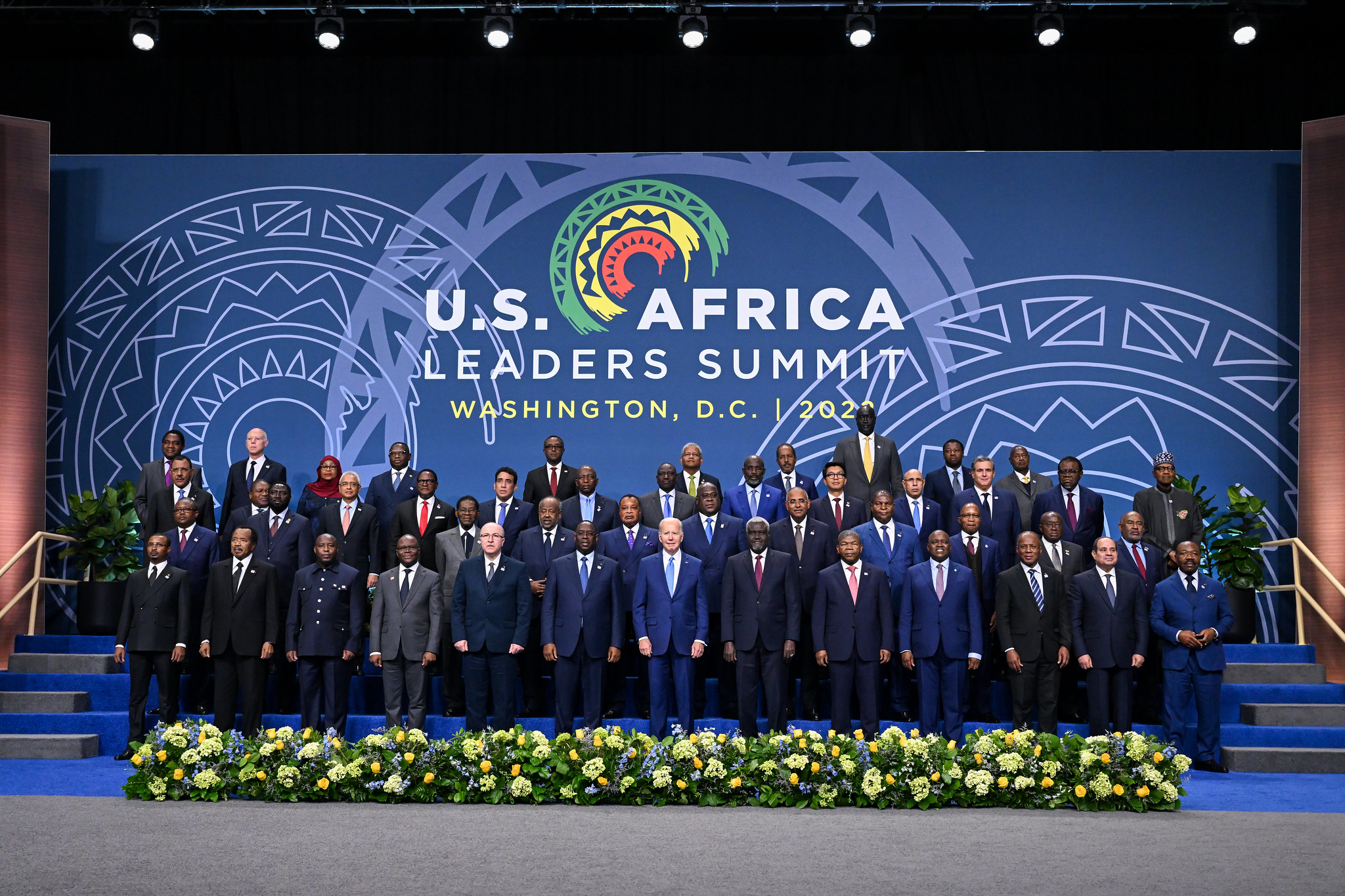African governments are rightly prioritizing cybersecurity and the U.S. government can assist them in building critical infrastructure that is cyber secure by design.
(Photo credit: U.S. Department of State)
In December 2022, President Biden convened the second U.S.-Africa Leaders Summit in Washington, D.C., bringing together more than 40 African heads of state, African business leaders and civil society groups. The goal was to strengthen the economic partnership between the U.S. and Africa, and, unlike the first summit in 2014, cybersecurity was on the agenda.
During the summit, I met with a ministerial delegation from West Africa, days after they met with representatives from the White House Office of the National Cyber Director and the Departments of State and Commerce. We discussed the state of play of cybersecurity in Africa and what resources and assistance are needed to close the security gap. The good news is, given the rapid digitization occurring across the continent, many African governments are appropriately prioritizing cybersecurity. Out of 54 African countries, 29 have introduced and passed cybersecurity legislation, while 14 have national cybersecurity strategies.
However, most African nations, much like the United States, are facing critical challenges when it comes to the talent, technology and funding required to adequately implement cybersecurity best practices. This is where the U.S. government can assist.
Africa’s rapid digitalization presents both challenges and opportunities
The problem is substantial and exigent. Africa’s rapid technological evolution and low level of cybersecurity make the continent an attractive target for cybercrime. Many countries have seen a rise in malicious cyber activity, including attacks on critical infrastructure. This has resulted in a notable economic impact. According to an Interpol report, Africa lost $4 billion to cybercrime in 2021, echoing the alarming worldwide trend where cybercrime losses topped $1 trillion in 2020.
More specifically, the World Economic Forum found that in 2022, 52% of companies in Africa believed they were unprepared for a large-scale cyberattack. Many companies have imperfect cybersecurity governance, a lack of training, awareness, budget, resources, and skills, etc. From a human capital perspective, the continent faces a 100,000-person gap in certified cybersecurity professionals, according to the Tony Blair Institute for Global Change (TBIGC).This demonstrates the extent to which cyber threats – and their growing sophistication – play an equalizing force in the global economy. Many economies in Africa are growing at a record pace, and studies show that by 2050, Africa’s share of global gross domestic product could triple to 9 percent. Africa’s expanding interconnectedness in the digital economy provides a key opportunity for U.S. cybersecurity stakeholders, as a cyber attack on critical infrastructure on the continent could have implications for global economic output.
The U.S. government can help Africa advance along its cybersecurity journey
There is strong demand for U.S. cybersecurity solutions in Africa, and many U.S. companies, like Tenable, are looking to access the African market. However, as noted during our meeting, there are several challenges to overcome. In addition, African officials noted that they are not just looking to be a customer of U.S. products. They are seeking partnerships that will place Africa on a self-sustaining journey to securing their own digital future. The U.S. government has many tools at its disposal to facilitate partnerships between U.S. and African companies, support cybersecurity skills transfer and job training, and reduce the financial cost of deploying U.S. cybersecurity solutions and technology.
While the initiatives outlined at the Summit such as the Digital Connectivity and Cybersecurity Partnership and Access Africa initiative are promising, the U.S. government should consider other steps that would help African nations advance along its cybersecurity journey. For example, the White House’s forthcoming National Cyber Strategy will include a section on international cooperation. In guiding implementation of the strategy, the White House should ensure that cooperation with Africa is not an afterthought. The U.S. Agency for International Development recognizes cybersecurity as an international development challenge; the Agency should prioritize cybersecurity as a key focus of capacity building in Africa. Finally, the U.S. Commercial Service, which facilitates trade relationships for American companies looking to expand overseas, should consider hosting a cybersecurity trade mission to Africa, where U.S. technology and solutions would be showcased.
Given that Africa is actively building its cyber infrastructure, the U.S. government can help ensure that African governments are fostering an environment that is truly secure by design. Building in these measures from the ground up eliminates the hurdle of having to retrofit cybersecurity technology into existing and outdated systems – a problem that often occurs here in the U.S. Cybersecurity should not be reserved for just developed countries and mature markets. If developing nations are left with security gaps, they will increasingly be targets for bad actors to exploit.
The U.S. government should leverage the momentum created by the U.S.-Africa Leaders Summit to accelerate its efforts to help African nations improve their cybersecurity. Not only is there an opportunity to create an environment that is truly cyber secure by design, but there is a genuine desire by African government leaders to implement these solutions and secure a prosperous future. Achieving cybersecurity in Africa benefits us all. It’s good for African consumers, it’s good for African policymakers, and it’s good for U.S. companies and the U.S. government.
Learn more
- "Africa must act now to address cybersecurity threats" (World Economic Forum)
- "Africa faces huge cybercrime threat as the pace of digitalisation increases" (Investment Monitor)
- "Fact Sheet: New Initiative on Digital Transformation with Africa" (U.S. White House)
